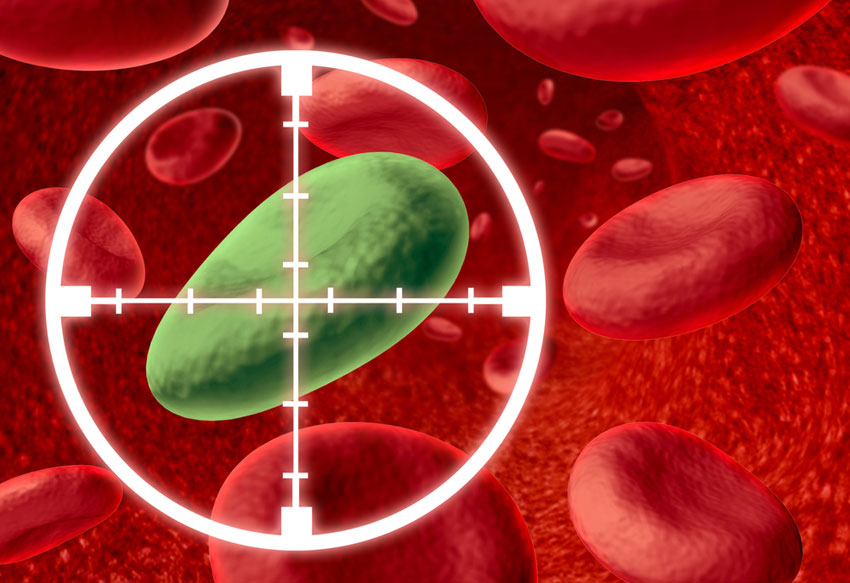Local Researchers are Working on a New HIV Treatment

Targeted virus cell image via shutterstock
According to the CDC, almost 50,000 Americans have been diagnosed with the HIV virus and a little more than 32,000 were diagnosed with AIDS. While current treatments for the deadly immunodeficiency disease are, for the most part, effective, these treatments are limited in their scope by toxicities and resistance in patients’ bodies, and cannot cure HIV. Boston researchers are now looking to change that.
In a study recently published in the journal, Nature, researchers at Beth Israel Deaconess Medical Center outline a newly developed treatment for HIV using antibodies.
The monoclonal antibodies in the study are able to target free virus cells as well as virally infected HIV cells, while the standard antiretroviral HIV treatment protocol can only inhibit the replicating virus cells. Researchers believe that combining this antibody treatment with the current standard antiretroviral will result in significantly decreased numbers of infected cells in patients’ blood and tissues.
Researchers administered a dose of these antibodies to monkeys chronically infected by the HIV virus. In just three days, after one dose, the virus became virtually undetectable in the monkey’s blood and tissues. Additionally, the anitbodies seemed to boost the monkeys’ immune system responses to the virus, which suggests an effective long-term benefit to this treatment as well.
Dr. Dan Barouch, the study’s lead author and the Director of the Center for Virology and Vaccine Research at Beth Israel, said in a press release:
“These data strongly encourage the development of monoclonal antibodies as a novel therapy for HIV in humans. Monoclonal antibodies in conjunction with antiretroviral drugs can be explored for treatment intensification, pre- and post-exposure prophylaxis, and virus eradication strategies for HIV in humans.”
While these antibody treatments are not yet a cure for HIV or AIDS, Beth Israel researchers say that this study’s progress is a big step toward developing a cure.


